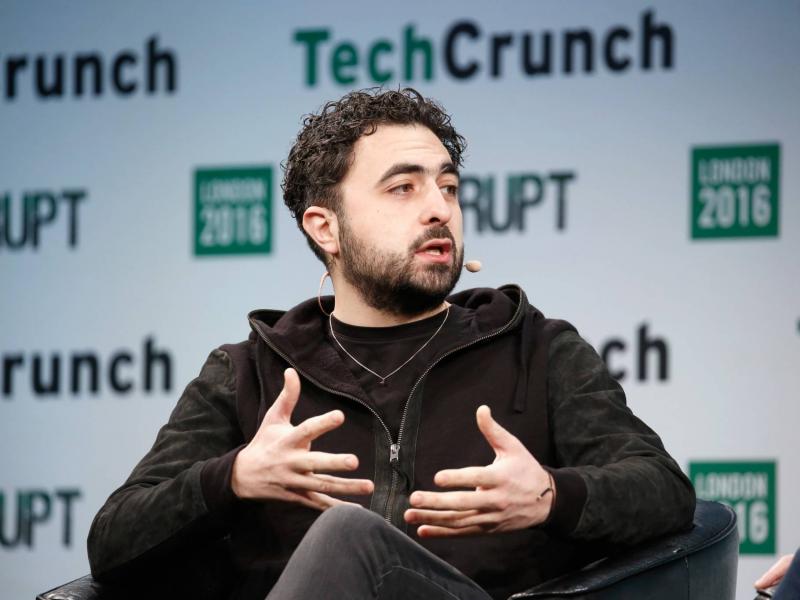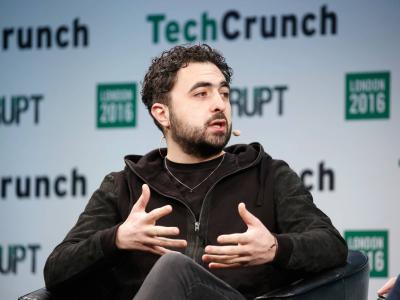Four months before assuming the role of head of the AI division at Microsoft, Mustafa Suleyman told reporters that "a temporary halt in technology development may need to be considered," expressing concerns about the sector and the revolution it is undergoing. While he did not rule out such a step within five years, he pointed to models like "ChatGPT" and explained during the "AI Summit" in November 2023 that they "do not pose a serious threat and do not result in any catastrophic damage."
Listening to Suleyman's interviews, reading his statements, and observing his positions, one quickly forms an image of an ambitious and vigorous entrepreneur and "serial tech founder," as he describes himself. He stood out as a child in school until just two days ago, when he knocked on the doors of one of the world's tech giants, Microsoft. He now faces a challenge he has often discussed over the years as he gradually climbed the ranks of AI, being one of the first to seek its advancements.
Who is Mustafa Suleyman?
In Microsoft's announcement, the company linked Suleyman's appointment to the second year of its platform's transformation in AI, which involves the ability to innovate, learn, and combine science, engineering, products, and design. Microsoft CEO Satya Nadella stated, "I've known Suleyman for many years, and I have great admiration for him as a founder, a visionary, and a creator of exceptional products. He also has a tremendous ability to build teams that pursue groundbreaking achievements." Suleyman will serve as CEO of "Microsoft AI," the new division encompassing the company's key products, including "Copilot," "Bing," and "Edge." He will also be a member of the top management team, reporting directly to Nadella in the organizational structure.
The British newspaper The Guardian mentions that he will now raise a question tinged with caution and ambition after taking office, related to what he posed during the recent AI summit at Bletchley Park, located between London and Leicester. "He will now have to balance caution with the desire to innovate and market," the newspaper adds, noting that like many AI pioneers, he has always expressed concerns about the technology in which he played a significant role in its development.
Suleyman aspired to become an entrepreneur since his school days and has remarkably succeeded at every stage, according to a report by SPYSCAPE. Although he shifted late to the world of computer science, he gradually became a leading figure in the AI industry and one of the most prominent voices advocating for an ethically responsible approach to developing new technologies. As a prominent leader resonating with the largest tech companies in the world, he is "in a good and unique position to guide the future of AI, with few others better qualified to do so," according to SPYSCAPE.
Where was he born and where did he study?
Mustafa was born in London in 1984, to a Syrian immigrant father who spoke only limited English and drove a taxi, while his mother was an English nurse. Although the circumstances he lived in were modest, British media report that Mustafa quickly began distinguishing himself with the characteristics that would define his later career: entrepreneurship, academic excellence, and social activism. His entrepreneurial spirit first emerged when he began buying candy in bulk and selling it to fellow students for a profit. However, despite his success, this endeavor did not satisfy his ambitions, as reported by Business Insider.
Thus, he turned to a more socially conscious mission, borrowing a wheelchair and touring attractions and public spaces in London to assess accessibility for disabled users, then publishing the results in an 80-page tourist guide. Meanwhile, his academic skills diversified, leading him to Mansfield College at the University of Oxford to study philosophy, a subject he believes taught him the fundamentals of systematic thinking, which enabled many of his later works, according to SPYSCAPE.
Exceptional founder
Listening to Suleyman's discussions on YouTube, "you quickly realize he is an activist with leftist leanings who wants to make the world a better place for everyone," reports Business Insider. Suleyman is one of the three co-founders of DeepMind, an AI lab in London. Google acquired it in 2014 for £400 million, marking the largest acquisition by the tech giant in Europe to date. He continued to work there until 2022 when he left to co-found inflection.ai with Reid Hoffman, co-founder of LinkedIn, in an effort to establish an AI program that does not exhibit any racist, sexist, or violent behaviors.
As a child, Suleyman read many books, which led to his early love for philosophy. During this time, he also had a passion for business and entrepreneurship, stating to Business Insider in 2018, "Since I was a child, I always started small projects and dreamed they would grow someday." Suleyman acknowledges the real concerns about the future of AI, having co-authored a book titled "The Next Wave," about the need to mitigate potential AI risks.
Despite previously allowing Google to acquire his startup (DeepMind), he stipulated that it establish an internal AI ethics board to supervise developments across the entire organization. Little is known about the mysterious ethics board, but Suleyman mentioned at a Bloomberg conference in 2015 that he wanted Google to disclose its members. In August 2019, Suleyman wrote in Wired magazine: "Doing these things right involves more than just having good intentions." He added, "We need to do the hard and practical work to know what ethical AI really means. If we can make it work for people and the planet, the impacts could be transformative."
Suleyman describes himself on his website as a "serial tech entrepreneur." He cites in his book "The Next Wave" that emerging technologies like AI and synthetic biology will provide "extraordinary medical advancements and breakthroughs in clean energy, creating not only new businesses but new industries and improvements in quality of life in nearly every conceivable area." On the flip side, this could pose threats and lead to risks. Suleyman adds, "AI could open pathways for massive cyberattacks, destructive robotic wars, and engineering of pandemics."
He frequently appears in British and American media to discuss AI and the technological revolution. He previously served as a political advisor to the Mayor of London on human rights issues, leveraging this experience in his own consulting firm, Reos Partners, which seeks to address social issues using conflict resolution-inspired techniques. In this role, he worked as a consultant for various organizations, including the United Nations and the World Wildlife Fund (WWF), according to Business Insider.




